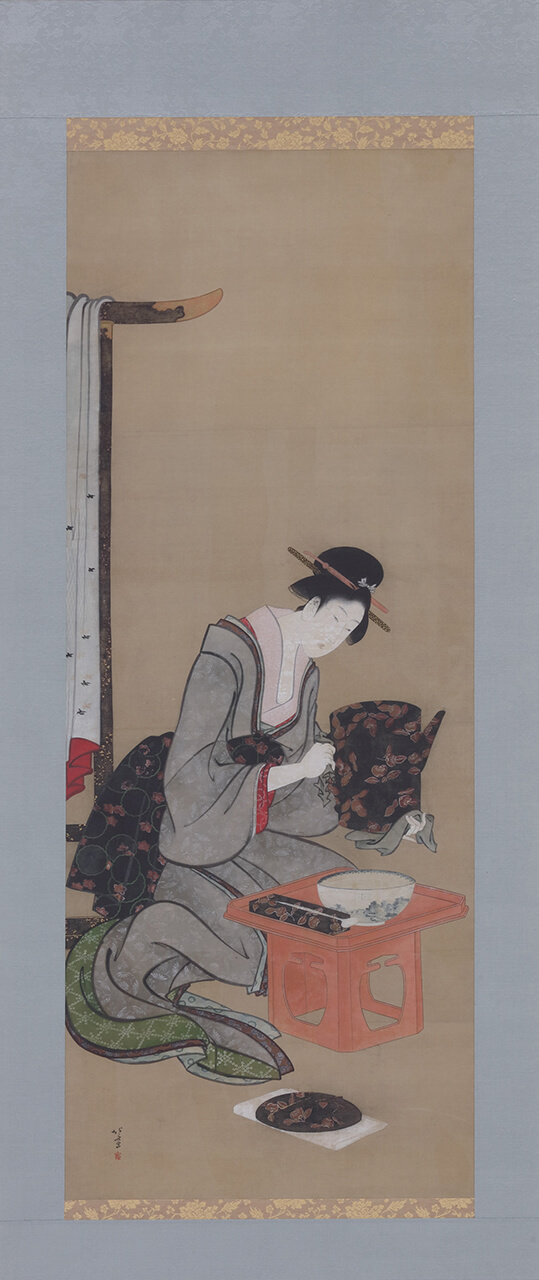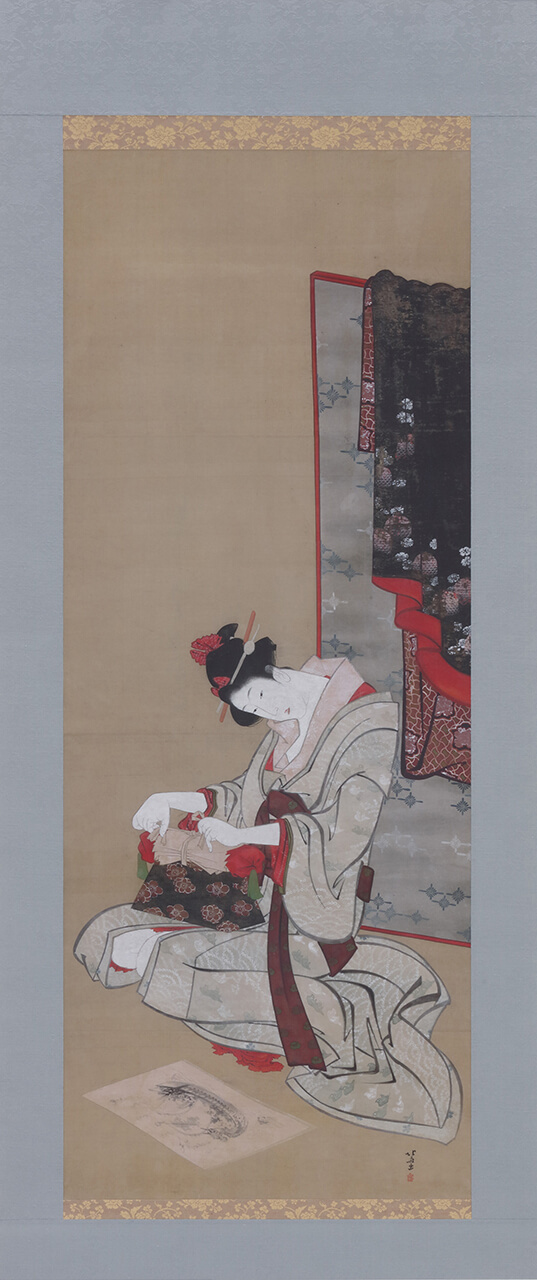New Year Customs
Facsimiles of works in the collection of the Freer Gallery of Art, Smithsonian Institution, Washington, D.C. : Gift of Charles Lang Freer, F1903.52, F1903.53.
These images are based on the high resolution facsimile produced by the Tsuzuri Project. Unauthorized copying, duplication, or transfer of these images is strictly prohibited.
DATA
- Artist:
- Katsushika Hokusai
- Historical era:
- Edo (19th century)
- Material:
- printed on silk
- Medium:
- pair of hanging scrolls
- Theme:
- High Resolution Facsimile of Japanese Art Abroad
- Size:
- Each screen H115.6 × W44.1 cm
- Recipient:
- Sumida Ward
- depository:
- The Sumida Hokusai MuseumMAP
[Original]
- Current owner:
- The Freer Gallery of Art of the Smithsonian Institution
- Material:
- ink, color on silk
DESCRIPTION
This work consists of a pair of panels, each depicting how women would greet a New Year. The right-hand panel shows a woman binding a picture of the Seven Gods of Good Fortune riding a treasure ship to her pillow in an attempt to make herself dream an auspicious first dream for the New Year. The left-hand panel shows how a woman collects fresh water in a lacquerware bowl and washes her face on the first morning of a New Year to rid herself of evil spirits for the new year. From the signature and seal applied to it, we presume that Hokusai produced it in his later forties. In 1903, it was exhibited for sale as part of a collection of fine art works offered by the Japanese fine art dealer Hayashi Tadamasa, who promoted the japonisme trend in Europe. Charles Lang Freer then purchased it through the art dealer Siegfried Bing, who similarly introduced Japanese fine arts to a wide range of people in Western countries.


